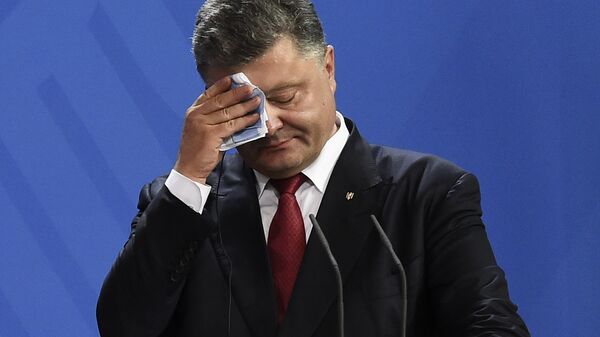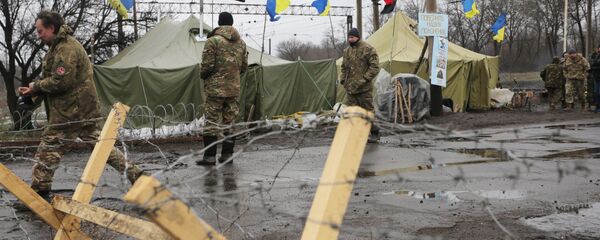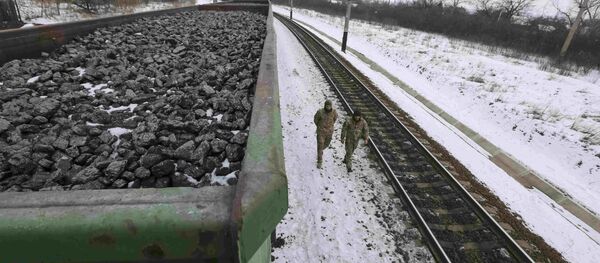On Thursday, Petro Poroshenko signed a decree officially severing the rail connection with the self-proclaimed Donetsk and Lugansk People's Republics. A makeshift blockade of the railway tracks between Ukraine and the breakaways, initiated by a few radical lawmakers and nationalist volunteer fighters, had been in place since late January.
The blockade led to the disruption of the delivery of anthracite coal to Ukraine, crucial to the country's network of power plants, forcing Kiev to introduce emergency measures to avoid rolling blackouts. Curiously, however, Kiev refused to reign in the nationalists, even as it counted its mounting financial losses. Authorities from the Donbass republics formally responded to the blockade by nationalizing Ukrainian enterprises in the area earlier this month.
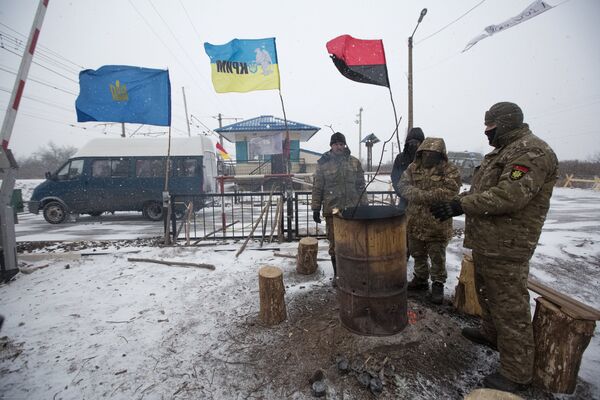
Before officially legitimizing it Thursday, Poroshenko had complained about the blockade's devastating effects for Ukraine's economy, and even asked the Ministry of Finance to calculate the expected losses. However, this week, something happened, and Poroshenko shifted his position 180 degrees, saying that the formalization of the blockade would somehow "ensure the restoration of Ukrainian sovereignty in Donbass," "return captured enterprises" and help in the implementation of the cease-fire.
Poroshenko Bloc Mustafa Nayyem, a prominent Maidan activist turned-politician, also criticized the president's move, warning that the blockade puts Kiev at risk of permanently losing Donbass.
Ukraine's opposition lawmakers were even more critical, predicting that the blockade could result in up to a 10% drop in Ukraine's GDP.
Opposition Bloc MP Vadim Novinsky told Ukrainian TV that "in the metallurgical sector alone, we predict a $3.5 billion total decrease in foreign exchange earnings. These billions in funds which have not been received will put pressure on the hryvnia and may very well pull it down."
Furthermore, Novinsky complained, "the losses to the gross domestic product in the event of the continuation of the blockade only in from the enterprises in the uncontrolled territories will amount to $3.8 billion, or 4.1% of the total GDP. Together with the losses caused by a domino effect, we face losing over 10% of our GDP."
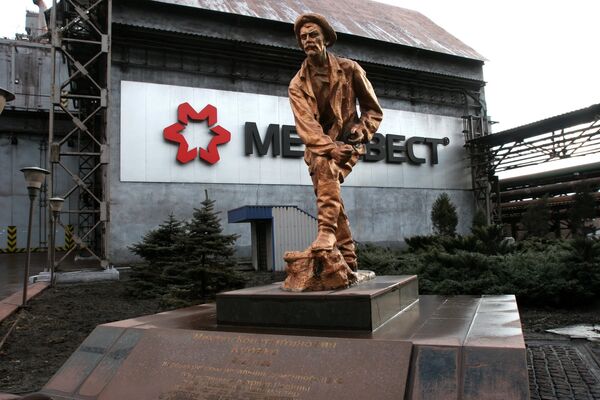
According to the lawmaker's calculations, over 150 large budget- and city-forming enterprises will suffer from the blockade directly, along with their 130,000 employees. As for the smaller and medium-sized enterprises, "their numbers will reach hundreds, if not thousands," Novinsky stressed. This is expected to lead to an increase in the unemployment rate of up to half a percentage point, pushing it up to 10.4%, he said.
In an interesting turn of events, Kiev's Western patrons have also criticized the president's move. On Thursday, State Department spokesman Mark Toner said that the US was monitoring the situation closely, adding that the blockade could have "serious consequences" for the implementation of the Minsk agreements aimed at ending Ukraine's civil war. France and Germany have also expressed their concern, saying that the blockade should be lifted, not turned into official policy.
At the same time, Konkov suggested that this was "an attempt to seize the initiative and up the ante in the dialogue with the US and the EU, to stick them with another headache…Kiev wants to force others to take responsibility for those processes which Ukraine's own leaders do not want to bear responsibility for."
For his part, Radio Sputnik contributor Vladimir Filippov was even more blunt. In a punchy op-ed for RIA Novosti, the journalist suggested that Poroshenko's options are actually very limited amid the growing political strength of radicals in Ukrainian politics.
"What was Poroshenko supposed to say?…That radicals have taken the upper hand, that he, as a cunning leader, decided to take charge of the protest, rather than becoming a victim of this radical lawlessness?" Filippov asked. The observer stressed that in contemporary Ukraine, "radicals are power. Therefore, Poroshenko is with them."
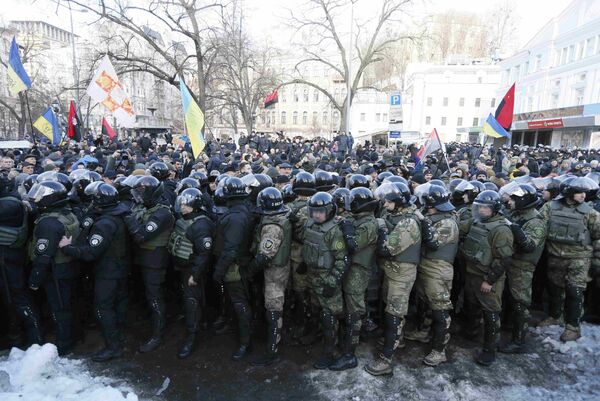
Ultimately, Filippov suggested that Poroshenko will probably be able to get away the blockade as far as Kiev's European patrons are concerned. "He will claim that the separatists themselves are to blame for everything – that they are the ones stifling the young Ukrainian revolution via a blockade – that they are encroaching on the democratic freedoms of the European Union, and the EU itself as well. He will again tell them that were it not for him – Poroshenko, wild hordes of Donbass insurgents and Russian occupiers would be marching through the streets of Berlin, Paris and Brussels."
What's more interesting, the journalist wrote, will be to see Brussels' long-term reaction to the current schizophrenia in Kiev. "The question worth asking is: what kind fancy footwork will the EU do to try to show the world that they were right to throw all of their bureaucratic and political strength behind the Maidan?" Filippov asked.
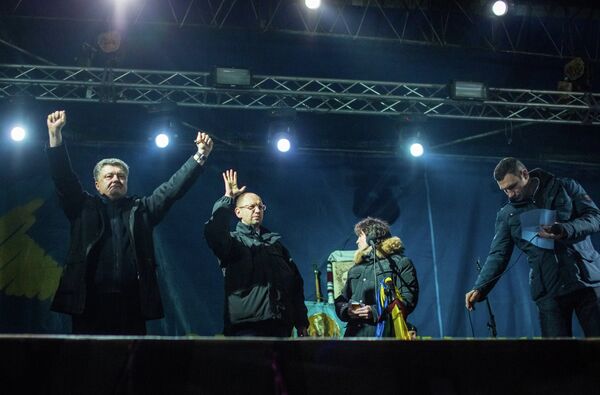
Ultimately, only time will tell whether Poroshenko will be forced to back down from his decision to formalize the blockade, in light of the pressures coming from all sides. In any case, what's clear is that the longer Kiev's Maidan authorities remain in power, the more Ukraine's long-term territorial integrity seems to be threatened.

